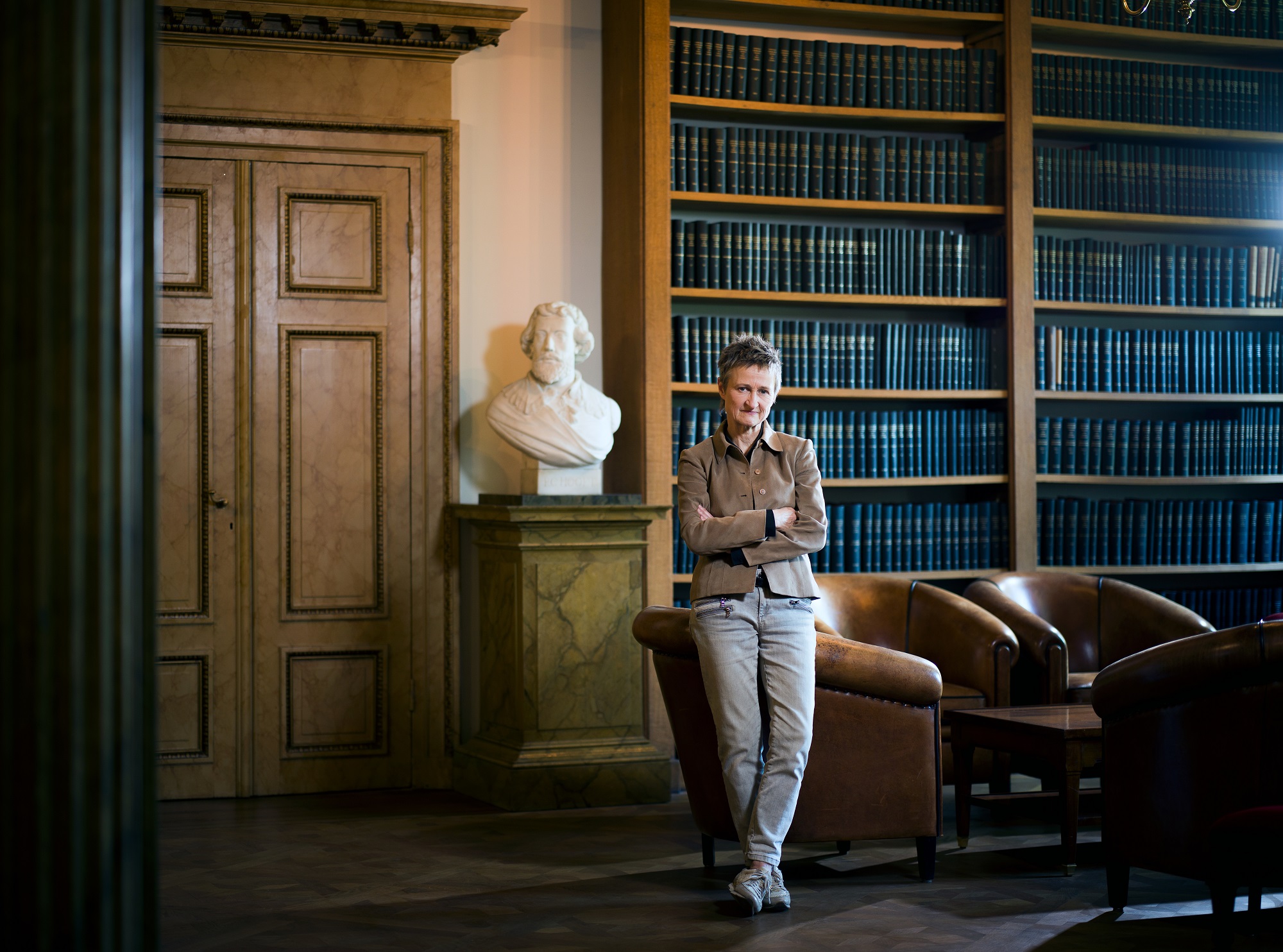“Not all ‘woke’ people want to polarise.” Ineke Sluiter, head of KNAW and speaker at the Diversity & Inclusion Week, responds to turmoil in Belgium about the cancel culture.
Ineke Sluiter: ‘I have a strong tendency to look first at the good side of “woke”’. (Photo: Merlijn Doomernik)
When people with different backgrounds, perspectives and opinions come together, the most interesting talks and best ideas arise. This is a catchphrase of the very first ‘Diversity & Inclusion Week’ programme at TU Delft being organized from October 4 to 8. There are workshops, lectures and discussions.
The awareness about racism, sexism and discrimination continues to grow. Some people call it a real woke movement, which has arrived from the USA. The merit of this ‘movement’ is indisputable. TU Delft is also woke, as evident in the Diversity & Inclusion Week.
Intimidating reactions
But the the rector of KU Leuven, Luc Sels, warns that in the wake of the woke movement, the cancel culture is emerging, a type of excessive political correctness that attempts to silence people with unwelcome opinions, he affirmed.
At KU Leuven, a fierce debate about the cancel culture started raging after Sels expressed his concerns about it in his opening speech for the new academic year. “Cancel culture puts academic freedom under pressure.” Academics apparently can be deterred by intimidating reactions and censure themselves. For example, some may no longer dare to talk about certain thinkers from the past who also held racist ideas.
What is the viewpoint of the KNAW chair, Ineke Sluiter (professor of Greek language and literature at the University of Leiden), on this topic? She is the keynote speaker at the Diversity & Inclusion week.
Do you get the impression that ‘the woke movement’, or part of it, undermines academic freedom?
“I suspect the woke movement doesn’t really exist. But we are certainly seeing an increase in environmental awareness and a call for justice and equality among the current generation of students. I am delighted with that! I have a strong tendency to look first at the good side of “woke” and at the best examples. That’s where I keep starting from. Not everyone who is ‘woke’ wants to polarise the debate, it’s more about creating space, emphasising equality and parity, with opportunity given in the debate for groups and voices that have previously been poorly represented. On the other hand, ‘cancel culture’ is the negative reflection of ‘woke’, and we have to state what the risks involved are in the debate.”
‘University directors must stand firmly behind their staff’
The polarisation in the world is increasing, not least on social media, where also increasing numbers of right-wing troll armies are active. Does this polarisation threaten the willingness of scientists to express their opinions in general?
“There is certainly polarisation evident on social media. And rudeness and threats are expressed there that also target academics and could lead scientists to withdraw from the public debate or apply other forms of self-censorship. That is an unwanted development, because in our knowledge society we want to encourage scientists to add to and enrich the societal debate, including (perhaps especially!) that on sensitive topics.”
Have you yourself experienced polarisation in society and skewing of debates (that the focus was not on the topic but rather on the man/woman)? If so, how have you dealt with it?
“As President of KNAW, I hear stories from colleagues who are directly confronted with threats, and I see the effect this has on them. I want the universities, the university directors, colleagues, as well as ‘ordinary’ citizens to stand behind the threatened colleagues more explicitly and support them. I know that those colleagues are helped by that support and that it makes a difference, and as a society we are taking a stand about the value of academic freedom.
“Do not underestimate the power of words! University directors must stand firmly behind their staff. Ensure that scientists are contacted when problems arise. Know what you have to do, for example if a police report has to be made, and do it together with the threatened colleagues.”
- Read also: Are you under fire on social media? This is what TU Delft can do to help
- And: ‘We are a little bit tribal’
Do you have a question or comment about this article?
tomas.vandijk@tudelft.nl


Comments are closed.